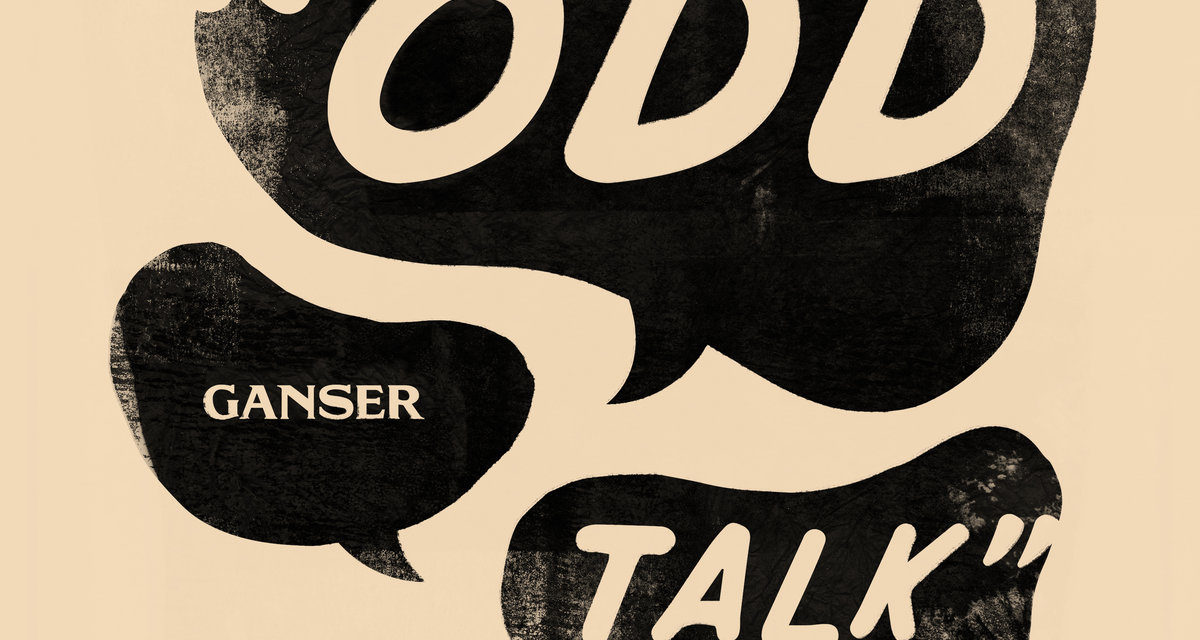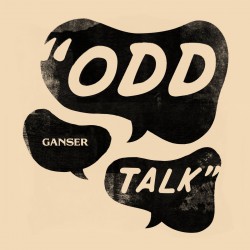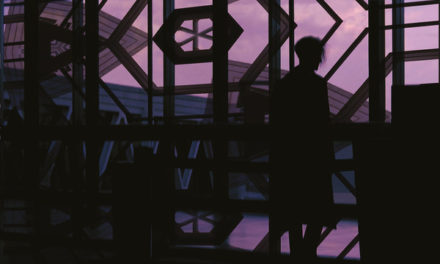Ganser
Odd Talk
No Trend Records
Discussions of post-punk (including those native to this site) often speak of its mood as if there’s a direct corollary between it and a certain type or style of instrumentation. Is it “dour”? Well, then of course we’d be talking about slow, low-key bass guitar heavy music. Is it “anxious”? Then we must be in the sort of up-tempo, groove and jagged guitar territory which lights up dance floors every few years. The latest from Chicago’s Ganser throws all of that out the window. Odd Talk has moods, to be certain – it’s a frustrated record, an uneasy record – but it reaches them with clashes in sound and an almost pastiche like approach seemingly designed to keep the listener on edge.
Some of the above restlessness in instrumentation and feel can perhaps be explained when the influence of original no wave on Ganser is considered, both musically and spiritually. Guitar and bass rarely speak the same language let alone move in the same direction on Odd Talk, and the results are disquieting from the start. It’s often left to the vocals, traded between Alicia Gaines and Nadia Garofolo to guide the tracks, and they’re rarely heading anywhere comforting. “Don’t disappoint, don’t overdo, don’t die, like, really die” Garofolo demands of herself in opening track “Comet”‘s personal reflection.
Brief interstitial pieces of music, some sampled (the bossa nova-type rhythm at the end of “YES NO”), some originally composed (the gentle synth refrain which opens and closes “Revel”), offer respite from the oppressive and clattering sound Ganser pursue, but that’s short-lived. The churning and borderline atonal fretwork of “PSY OPS” certainly feels like the musical equivalent of its namesake. A more permanent resolution comes right at the end, in the form of an out of left field shoegaze number, “Touch Insensitive”. The regretful and mournful lyrics which make up much of the rest of Odd Talk are still in place, but clad in Medicine-like garb some degree of succour is finally reached.
Their first full-length after two EPs, Odd Talk is far more fragmented and discordant in its delivery than Ganser’s preceding work. Ironically, that sense of fragmentation and difficulty gives the group a much firmer identity. Regardless of its apparently perpetual state of unease, the experimentation of the record’s construction give Ganser a new purpose and intensity.






